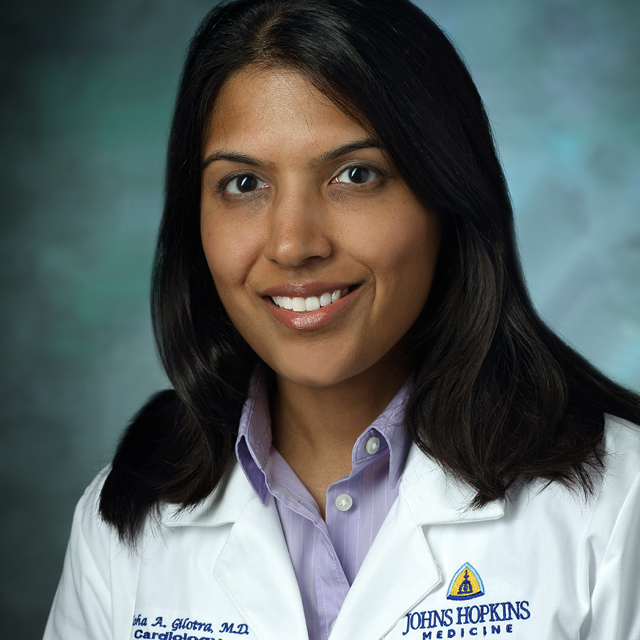
Cardiovascular Report
December 4, 2017

Over the past several years, many clinics have emerged to provide a specialized home for patients with complex cardiovascular disease. Three programs of note include the Heart Failure Bridge Clinic (HFBC), the Center for Resistant Hypertension (CRH) and the Lipid Program. All three range in complexity and have proven essential to keeping patients out of the hospital, says Gordon Tomaselli, chief of the Division of Cardiology and co-director of the Heart and Vascular Institute. “This has really been a boon for patient satisfaction, keeping folks out of the hospital, improving overall function and getting people ‘tuned up’ in a more expeditious fashion,” he says.
The Heart Failure Bridge Clinic (HFBC), managed by nurse practitioners, provides multidisciplinary disease care for patients with heart failure, offering postdischarge follow-up, intravenous diuretics, laboratory testing, education, pharmacy visits and palliative care. The clinic handles same-day appointments for patients experiencing complications, as well as referrals from cardiologists. A heart failure nurse educator visits patients in the hospital to let them know about the clinic and encourage referrals. The goal is to see patients for follow-up within one week of hospital discharge, says clinic director Nisha Gilotra.
Since the clinic opened in 2012, HFBC volumes have increased dramatically, and the clinic has become a national model for similar heart failure disease management programs, Gilotra says. In 2016, clinic staff members conducted 2,469 outpatient visits, including 441 administrations of i.v. diuretics. Among those seen after a heart failure hospital discharge, the 30-day readmission rate was just 8.6 percent, compared with 26.9 percent for all Department of Medicine patients discharged with heart failure. “It’s become a go-to resource for house staff, cardiologists and community providers,” she says.
Gilotra and her colleagues have also been tracking outcomes and conducting small research studies in the clinic.

Center for Resistant Hypertension
Another specialty clinic, the Center for Resistant Hypertension headed by Oscar Cingolani takes a personalized approach to diagnosing and lowering medication resistant hypertension. The physicians with the CRH aim to diagnosis the underlying causes of recalcitrant high blood pressure and adjust medications. At the same time, they make lifestyle recommendations to create an optimal treatment plan for patients.
“If you look at general internal medicine clinics and even cardiology clinics, the diagnosis of hypertension is fraught with lots of errors,” Tomaselli says. “There’s as much overdiagnosis as there is underdiagnosis.”
Cingolani and his colleagues conduct detailed evaluations to deduce what is so-called white coat hypertension, when someone’s blood pressure rises out of anxiety from being in a clinic, versus hypertension resistant to drug treatment, including looking for contributing causes of high blood pressure, such as sleep apnea or thyroid issues.
Read more: A New Era for the Johns Hopkins Lipid Program
LEARN MORE OR REFER A PATIENT:
Visit the Heart and Vascular Institute's Heart Failure Bridge Clinic or call 443-997-0270.
Visit the Heart and Vascular Institute's Center for Resistant Hypertension or call 443-997-0270.

